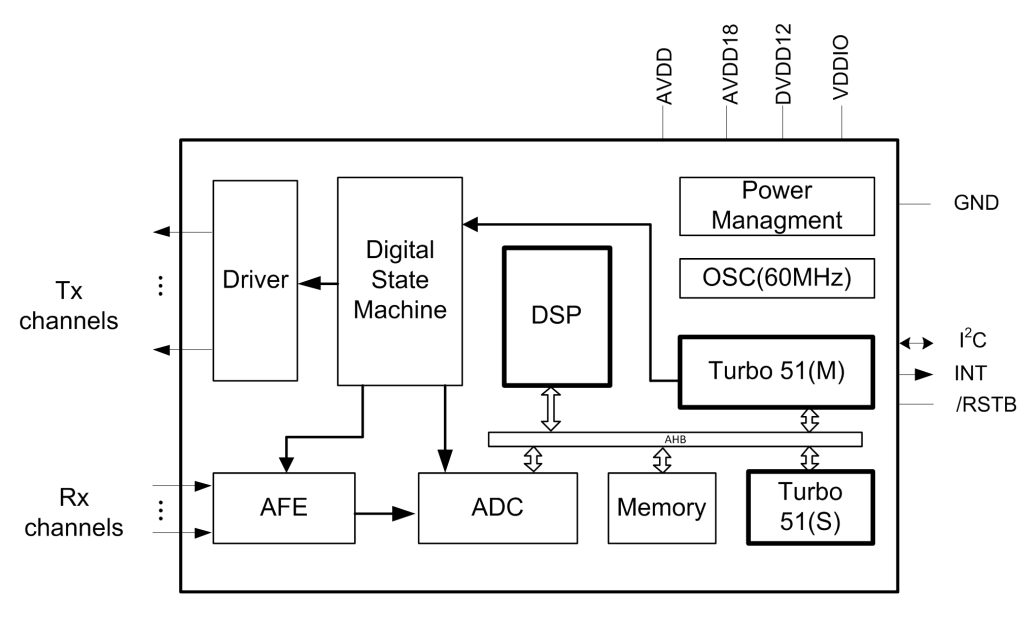Touch Screen IC-GT911
Overview
GT911, a new-generation 5-point capacitive touch solution designed for 7” to 8” MID, consists of up to 26 Transmitter electrodes and 14 Receiver electrodes to provide higher touch accuracy.
GT911 supports up to 5 concurrent touches with real-time tracking of accurate position and motion trajectory as well as touch area. Furthermore, it is able to report such information to the host as required.
Features
1. Built-in capacitive sensing circuit and high-performance MPU
a.Report rate: 100Hz
b.Outputs touch coordinates in real time
c.Unified software applicable to capacitive touch screens of various sizes
d.Single power supply, internal 1.8V LDO
e. Flash embedded; In-system reprogrammable
f.HotKnot integrated
2. Capacitive touch sensor
a.Channels: 26 (Tx channels)*14 (Rx channels)
b.Supports capacitive touch screen sizes: 7” to 8”
c.Supports touch key design on FPC
d.Supports ITO glass and ITO Film
e. Cover Lens thickness supported: 0.55mm ≦ Glass ≦ 2mm,
0.5mm ≦PMMA ≦ 1.2mm,
(For detail, please refer to Sensor Design Guidelines)
f.Adaptive frequency hopping
g.Supports OGS full lamination
3. HotKnot
a. Transmission rate:7.0 Kbps(max)
b.Data frame maximum capacity:128 bytes
c.Applicable sensor types: OGS/traditional GFF/GG/GF
d.Environmental adaptability
e.Self-calibration during initialization
f.Automatic drift compensation
g.Operating temperature: -40℃ to +85℃; humidity: ≦95%RH
h.Storage temperature: -60℃ to +125℃; humidity: ≦95%RH²
4. Host interface
a.Standard I2C interface
b.Works in slave mode
c.Supports 1.8 V to 3.3 V host interface voltage
5. Response time
a.Green mode: <48 ms
b.Sleep mode: <200 ms
c.Initialization: <200 ms
6.Power supply voltage:
a.Single supply: 2.8 V to 3.3 V
b.Power supply ripple:
c.Vpp≦50 mV
7.Package: 52 pins, 6 mm*6 mm*0.8 mm, QFN 0.4 mm Pitch
8.Tools provided to support application development:
a.Touch panel module parameter detector and auto-generator
b.Touch panel module performance test tool
c.MP Test Tool
d.Reference driver code and documentary guide for host software development
Block Diagram




 Skype
Skype WhatsApp
WhatsApp Email
Email Inquiry
Inquiry WeChat
WeChat
 TOP
TOP